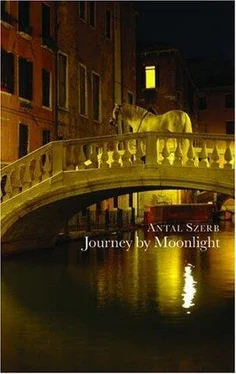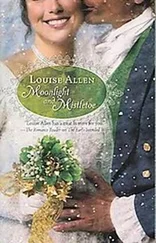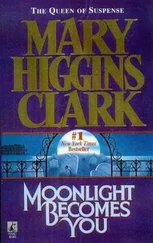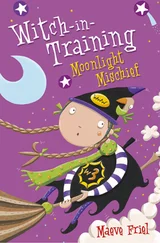“Millicent, I am sorry, I still owe you money. I feel really bad about it, but you know, back home it has to be channelled abroad through the National Bank, and the banking machinery is very complicated. Do please bear with me. Truly, it should come in the next few days.”
“Don’t mention it. And if you see any good pictures, do write to me.”
GUBBIO is reached by the narrow-gauge motor-train that runs between Fossato di Vico and Arezzo. Despite the shortness of the distance, it is a tedious journey. It was also hot, and Mihály was exhausted by the time he arrived. But the city, as it came into view a little way up the road from the station, filled him, from the very first glance, with delight.
It cowered on the side of a huge, barren, typically Italian hill, as if it had collapsed while fleeing upwards in terror. As you looked at it, not a single house seemed less than hundreds of years old.
At the centre of a topsy-turvy tangle of streets, there towered an incredibly high building. Quite why it had been erected in the centre of this godforsaken place, and by whom, he could not imagine: a vast, gloomy medieval skyscraper. It was the Palazzo dei Consoli, from which the consuls ruled the little community of Gubbio until the fifteenth century, when it came under the sway of the Montefeltri, princes of Urbino. And above the town, almost at the peak of the Monte Ingino, stood a long, vast white block of a building, the monastery of Sant’ Ubaldo.
Meanwhile down below, on the road leading up from the station, Mihály found an inn that appeared to be of the better sort. He took a room, had lunch, rested a little, then set out to explore Gubbio. He inspected the interior of the cavernous Palazzo dei Consoli, which reminded him somewhat of a vast studio, with its extremely ancient tavole eugubine —bronze tablets dating from pre-Roman times and preserving the sacred texts of the Umbrian people. He also looked round the old cathedral. There was not much else to see. The main sight here was the city itself.
In most of the towns in this part of Italy (as in so many ancient cities elsewhere) the houses give an impression of dilapidation, of being within a few short years of total ruin. This is because where the Italians built with local stone it was not the practice to plaster the outer walls. Consequently an observer from Middle Europe concludes that the plaster has fallen off and the house, and indeed the entire city, been left to desolation and ruin. Gubbio was even more unplastered, even more tumble-down, than other towns in Italy. It was absolutely desolate. It was off the beaten tourist track. There was scarcely any industry or commerce. It was a mystery how the few thousand people hemmed within its walls could make a living.
Mihály came out of the cathedral and turned into the Via dei Consoli. “This is the street Ellesley talked about,” he thought. It was a street to make the imagination riot: medieval houses, blackened by age, with a bleak, penniless dignity, and, one suspected, inhabitants to match, people living off bread and water in the shadow of a glorious past that had vanished centuries before.
And straightaway, in the third house along, there actually was a door of the dead: next to the usual door, about a metre above the ground, a narrow gothic door-opening, bricked up. There was one in almost every house along the Via dei Consoli, but almost nowhere else in the town; and, strangely, there was no-one about.
He went down a narrow back-alley to the street running parallel behind. This was no less ancient, only a little more gloomily patrician, but it did seem that living beings might reside there. And also, it seemed, dead ones. For outside one particular house a group of people met his astonished eye. Had he not immediately realised what was happening he would have thought it was a vision. People were standing outside the house holding candles, their faces covered with hoods. A funeral was taking place, and here, still following the ancient Italian ritual, members of the family, a hooded fraternity, were taking out the dead.
Mihály removed his hat and edged closer for a better view of the ceremony. The door of the dead stood open. Through it he could see into the house, into a dark room containing the bier. Priests and their assistants stood around the coffin, chanting and swinging censers. After a few minutes they lifted it up and passed it through the door of the dead into the street, where the hooded relatives hoisted it on to their shoulders.
Then in the gothic doorway a priest appeared in flowing robes. His pale ivory face, with its sombre, all-unseeing eyes, glanced at the heavens. Then with bowed head he placed his hands together in an ancient gesture of inexpressible gentleness.
Mihály did not rush up to him. For he was now a priest, a pale, serious monk performing a religious duty … No, one couldn’t just run up to him, like a schoolboy, like a little boy …
The pallbearers set off with the coffin, followed closely by the priest and the procession of mourners. Mihály joined it at the rear, and trod slowly with hat in hand towards the camposanto , up on the hill side. His heart was beating so hard he had to keep pausing for rest. Would they have anything to say to each other, after so many years, journeying along such widely divergent paths?
He asked one of the people in the procession what the priest was called.
“That’s Father Severinus,” said the Italian. “A very holy man.”
They reached the burial ground. The coffin was lowered into the grave, the funeral came to an end, and people began to move away. Father Severinus set off for the town with a companion.
Mihály still could not make up his mind whether to approach him. He felt that Ervin, now that he had become such a holy person, would surely be ashamed of his worldly youth, and, like St Augustine, would look back upon it with lofty disdain. Surely he would see it all quite differently, and had doubtless dismissed him, not wanting even to think about him. Perhaps it would be better to leave straightaway, and be content with the miracle of simply having seen him.
Just then Father Severinus left his companions and turned back. He was coming straight towards him. Every adult response deserted Mihály, and he ran towards him.
“Mishy!” shouted Ervin, and embraced him. Then he offered the right and the left sides of his face to Mihály’s cheeks, with the kindliness of a priest.
“I saw you at the graveside,” he said quietly. “How did you get here, where no bird flies?”
But this was mere cordiality. It was clear from his tone that he was not in the least surprised. Rather, it was as if he had long anticipated this meeting.
Mihály was unable to say a word. He simply gazed at Ervin’s face, now so long and so thin, and his eyes, in which the youthful fire still blazed. Beneath the happiness of the moment he could see in that face the same profound sombreness he had found in the old Gubbio houses. He could think of only one word, ‘monk’. It was borne in upon him that Ervin really was a monk, and his eyes filled with tears. He turned his face away.
“Don’t cry,” said Ervin. “You have changed too, since those days. Oh Mishy, Mishy, I’ve thought about you so much!”
Mihály was filled with a sudden impatience. He must tell Ervin everything, everything, things he couldn’t tell Erzsi … Ervin would know a balm for everything, now that he was bathed in the glory and the radiance of another world …
“I knew you would have to come into Gubbio, so I came here. Tell me when I can talk with you, and where. Can you come with me right now, to the hotel? Can we have dinner together?”
Ervin smiled at his naïveté.
“That really isn’t possible. I’m sorry, even at this moment I’m not free, my Mihály. I’m busy all evening. I have to be off straight away.”
Читать дальше












